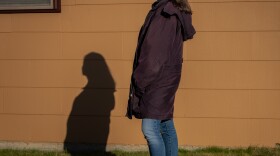
Meredith Rizzo
Meredith Rizzo is a visuals editor and art director on NPR's Science desk. She produces multimedia stories that illuminate science topics through visual reporting, animation, illustration, photography and video. In her time on the Science desk, she's reported from Hong Kong during the early days of the pandemic, photographed the experiences of the first patient to receive an experimental CRISPR treatment for sickle cell disease and covered post-wildfire issues from Australia to California. In 2021, she worked with a team on NPR's Joy Generator, a randomized ideas machine for ways to tap into positive emotions following a year of life in the pandemic. In 2019, she photographed, reported and produced another interactive visual guide exploring how the shape and size of many common grocery store plastics affect their recyclability.
Her video work has included science explainer videos on the physics of bullets to how long you can be contagious with the flu, and an animated series on the science of invention. As an art director, she helped build NPR's network of freelance illustrators and animators, growing the community through NPR's Illustration Tumblr. She has also art directed for three seasons of the NPR podcast Invisibilia.
Rizzo holds a master's degree in New Media Photojournalism from Corcoran College of Art + Design and a bachelor's degree in photography from Wolverhampton University in the U.K. Prior to joining NPR in 2013, she photographed artifacts from the Library of Congress' collections, contributing to a public archive of more than 150,000 images over four years.
-
The Nuclear Ship Savannah offers a snapshot of a nuclear future that never quite came to pass.
-
Researchers in Virginia Beach, Va., show how they test wastewater for signs of COVID-19, and how they're preparing to look for other health threats.
-
The start of pregnancy — as well as exactly when that happens — is a hot topic in some state legislatures and U.S. courts. Understanding the nuances of what happens when has never been more important.
-
Satellite data show water levels plummeting at the Kakhovka Reservoir. The reservoir supplies drinking water, irrigates vast tracts of farmland, and cools Europe's largest nuclear plant.
-
Stephanie was usually careful about her health and regular vaccinations. But then she got into sharing far-out videos and fringe ideas. When COVID hit, misinformation put her and her husband at risk.
-
An NPR analysis of security footage and photos following the attack on Europe's largest nuclear power plant shows that many of the plant's critical safety systems were in the field of Russian fire.
-
It's been two long years of COVID gloom. But NPR's readers didn't let it keep them down. From cicada tracking to open-water swimming to roller-skating squads, you share how you bring the fun.
-
One day you're worrying about the regular old coronavirus. Then — seemingly out of the blue — there are variants. Worrisome variants! How did they come to be? And why are they likely more contagious?
-
Celebrations, milestones and daily routines happen whether we're ready or not, and the summer of 2020 was no different. As Americans sought relief in an ongoing pandemic, they got creative.
-
Family violence increases in places that have been severely burned in bushfires, Australian research finds. The isolation and financial stress of COVID-19 appear to be exacerbating the problem.








